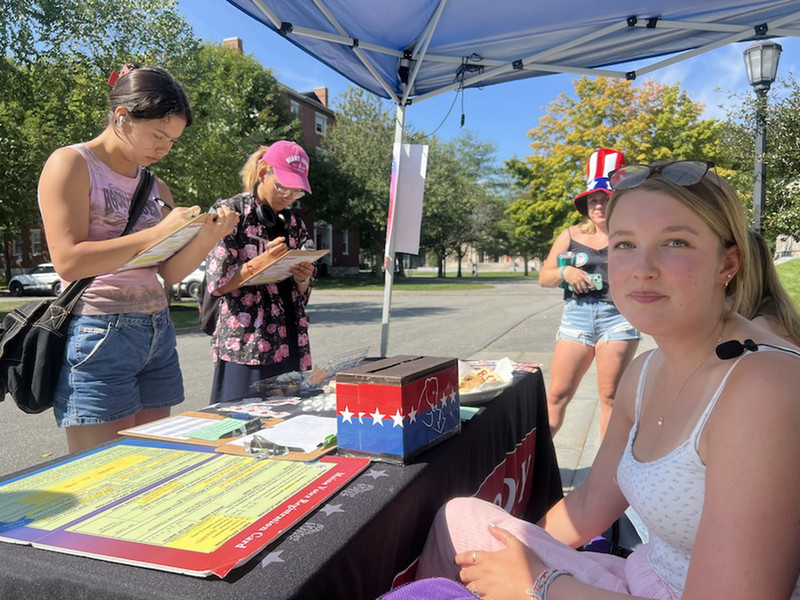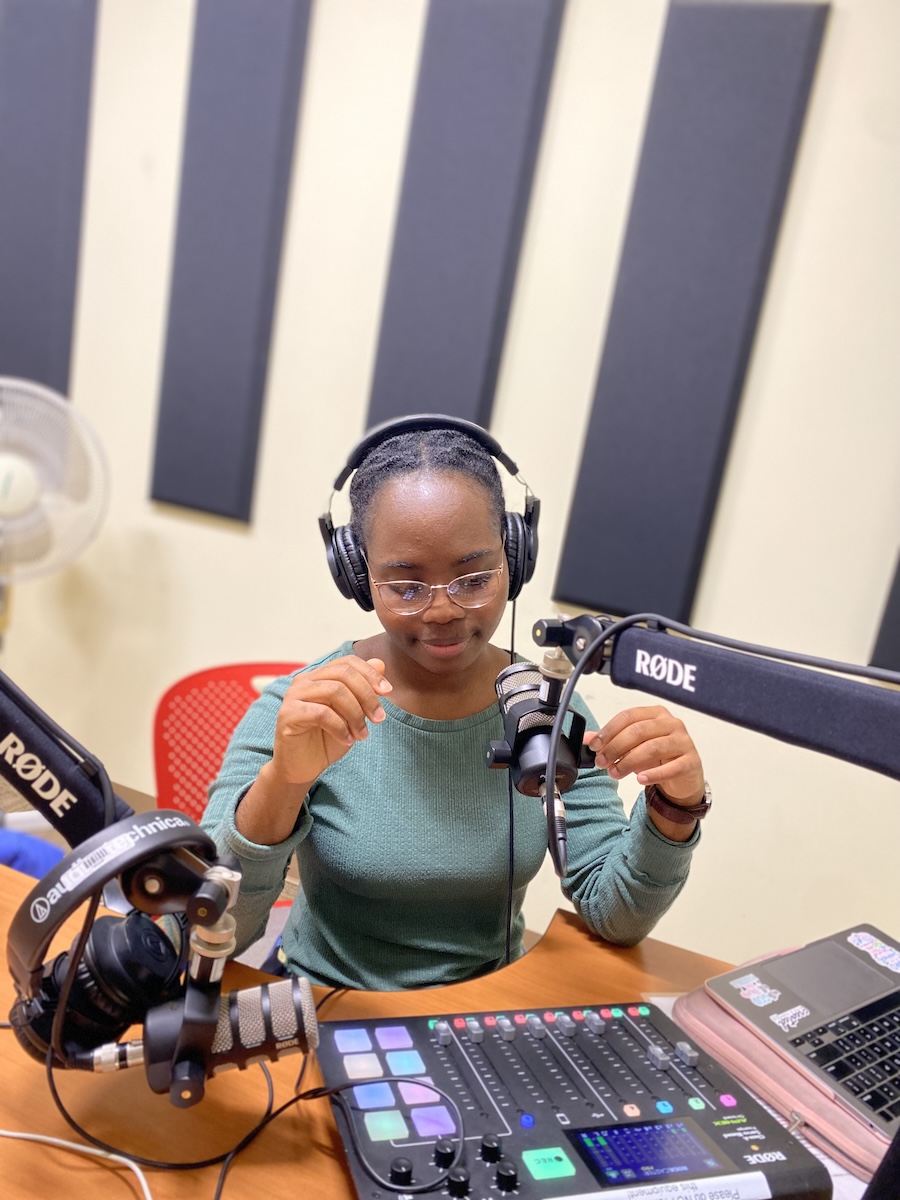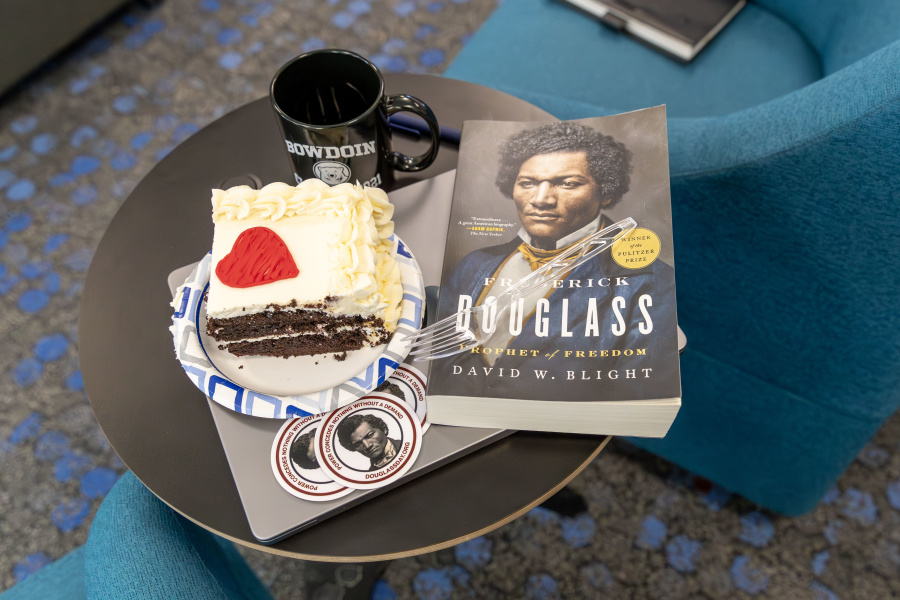First the Alternative Spring Break, Then the Reflection
By Philip Kiefer '18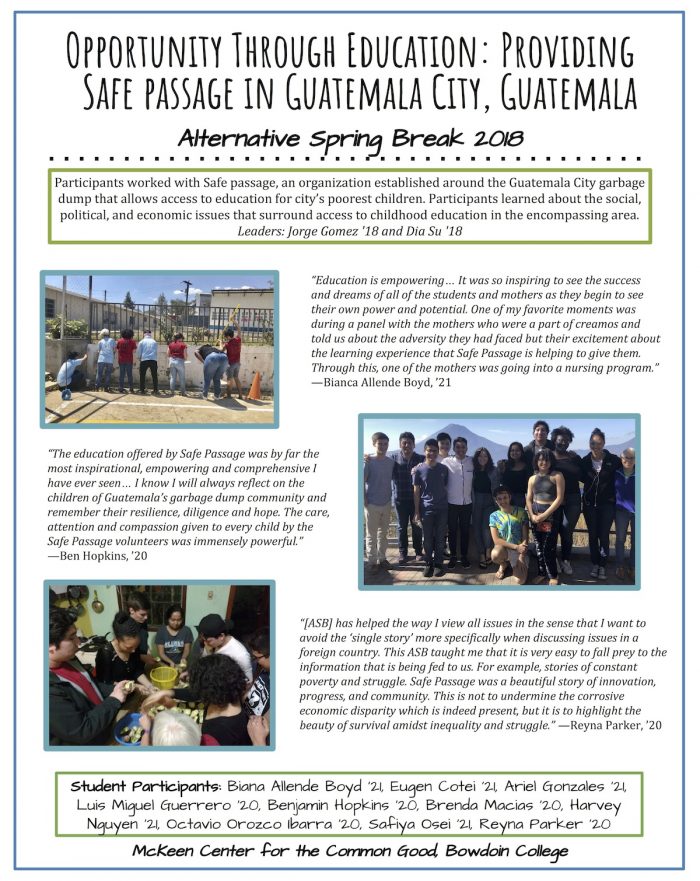


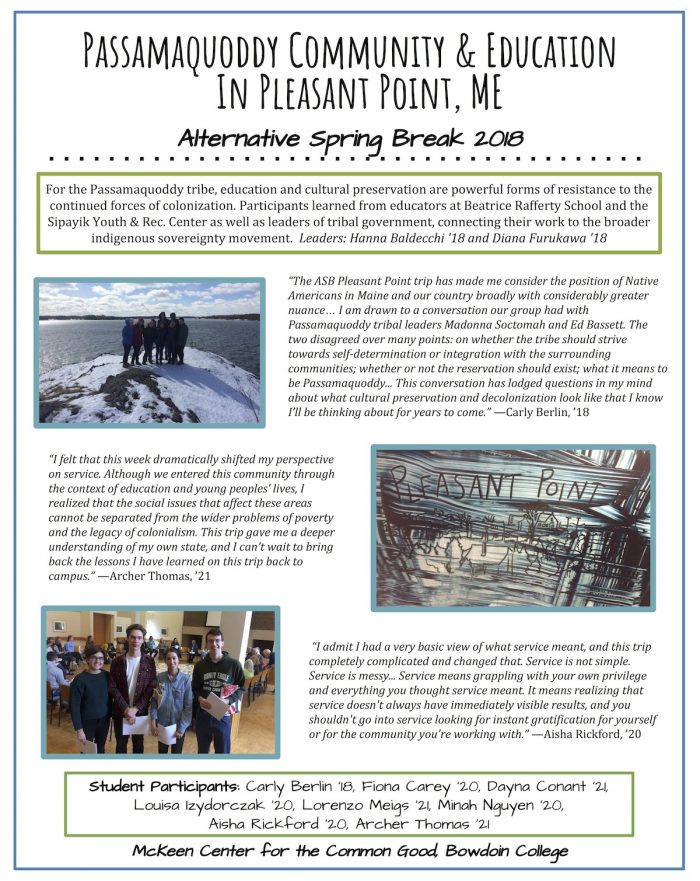
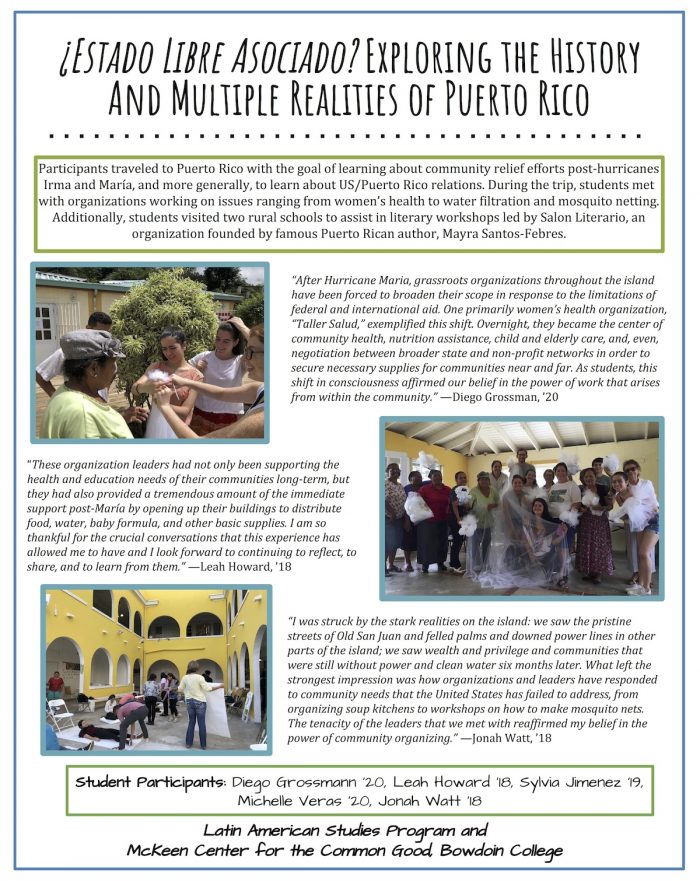

Over Spring Break, more than fifty students travelled to six different locations across the world with the Bowdoin McKeen Center’s Alternative Spring Break program. It is a tradition at Bowdoin that these students gather again, soon after they have returned to campus, for an evening of reflection, hosted by the McKeen Center for the Common Good.
This year’s event, on April 3, was a chance for students to share their experiences with one another and the Bowdoin community members who had helped plan the trips. The event began with presentations by representatives from the trips, each of whom told a short story that in some way captured their experience. And although the trips focused on dramatically different issues in different parts of the world – the recovery process in Puerto Rico, food security in Iowa, urban education in Baltimore, health care in Latinx communities in Los Angeles, cultural and economic wellbeing on the Pleasant Point Reservation in Maine, and urban poverty in Guatemala – similar things stood out to many students.
In particular, many students remembered being surprised, in the best sense of the word, by the people they met. A student on the Los Angeles trip remembered working alongside an Alcoholics Anonymous group at a food pantry. The members of the group were mostly “white, Southern men,” she said. “And we got to really dig into their perspectives. It was a great moment to hear from people that we might never interact with. They were just this really funny, dorky group of great guys that we were working alongside. And I never would have thought we’d get that, given our trip focus, but it was such a lucky moment.”
Several of the students who spoke acknowledged that a week’s worth of service would not, clearly, change the world, but that there was still something valuable in their experience. “There is a unique value in building bridges between communities,” said Archer Thomas ’21.
Alternative Spring Break trips are organized by student leaders, with the help of faculty and staff advisors. These student leaders spend much of the year going over logistics, learning about the community they will visit, and thinking about how to perform effective service in just a week. They spend the months leading up to the trip leading seminars for other students on the trip to introduce them the intricacies of the place they will eventually visit. Many of the leaders themselves began as Alternative Spring Break participants, and leading a trip becomes a way to bring their experience full-circle.
“My favorite thing about the trip was watching my participants grow, to come out of their shells and let themselves be vulnerable. That was really beautiful,” said Cindy Rivera ’18.
“When I was a first year on the trip, I thought my leaders were these supreme authorities,” remembered Jorge Gomez ’18, who led the Guatemala trip. “But knowing how much work goes into it now makes the whole thing more special. I really recommend that you continue with the ASB program, because in the end, you get to meet such great people, at Bowdoin and elsewhere.”
